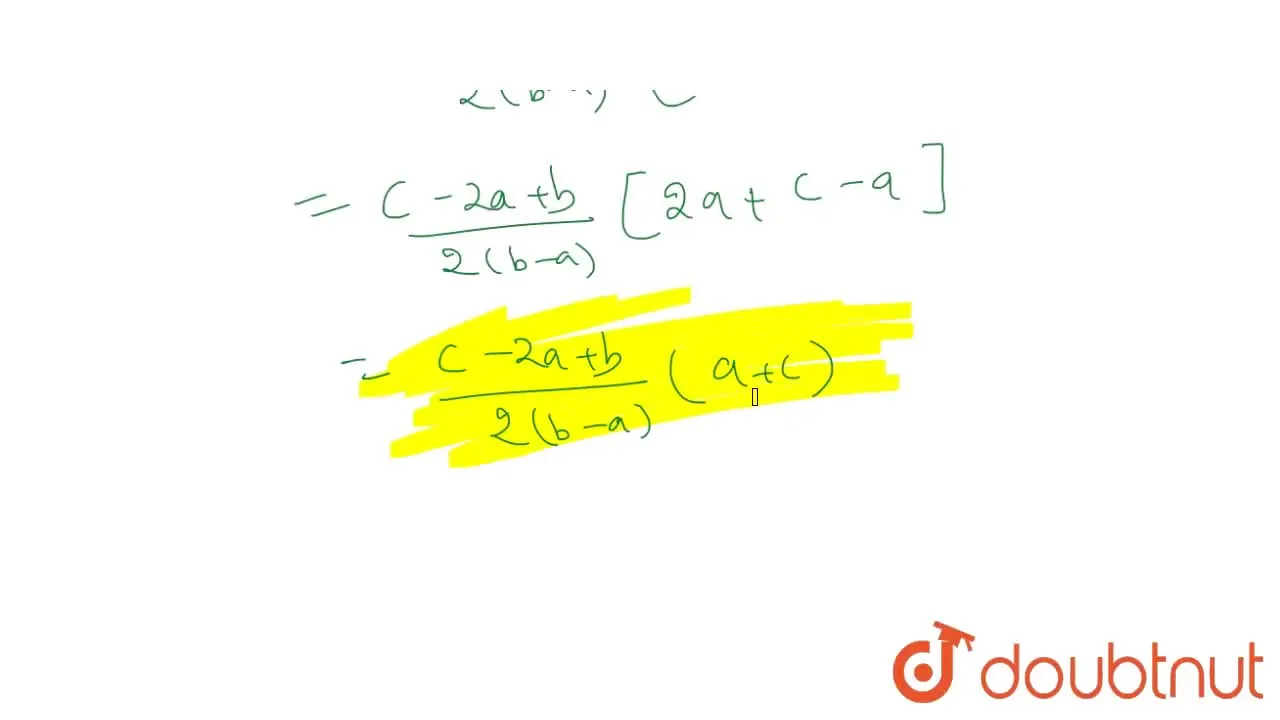Show that the sum of an AP whose first term is a, the second term b and the last term c, is equal to (a+c)(b+c−2a)2(b−a).
Given that, the AP is a, b, …, c.
Here, first term = a, common difference = b - a
and last term ,l=an=c
∵an=l=a+(n−1)d
⇒c=a+(n−1)(b−a)
⇒(n−1)=c−ab−a
⇒n=c−ab−a=1
⇒n=c−a+b−ab−a=c+b−2ab−a ...(i)
∴ Sum of an AP, Sn=n2[2a+(n−1)d]
=(b+c−2a)2(b−a)[2a+{b+c−2ab−a−1}(b−a)]
=(b+c−2a)2(b−a)[2a+c−ab−a.(b−a)]
=(b+c−2a)2(b−a)(2a+c−a)
=(b+c−2a)2(b−a).(a+c) Hence proved.
Related Playlists
Similar Questions
Show that the sum of an A.P. whose first term is a, the second term is b and the last term is c, is equal to ((a+c)(b+c−2a))/(2(b−a))
View SolutionIn a G.P. the first term isa, second term is b and the last term is c then sum of the series is
View SolutionWhat is the sum of first ten terms of the A.P., if the first term is 1 and the last term is 19 ?
View SolutionFind the sum of the first 51 terms of the A.P.: whose second term is 2 and fourth term is 8.
View SolutionFind the common difference of an AP whose first term is 4, the last term is 49 and the sum of all its terms is 265.
View SolutionFind the five terms of an A.P. whose sum is 12(12) and first and last term ratio is 2:3.
View SolutionFind teh sum of 15 terms of an AP whose first and last terms are 5 and 75
View SolutionSum of first n terms of an A.P. whose last term is
l and common difference is d, isView SolutionFind the first term of an AP having 9 terms whose last term is 28 and sum of all the terms is 144
View SolutionThe sum of the first n terms of an AP whose first term is 8 and the common difference is 20, is equal to the sum of first 2n terms of another AP whose first terms is -30 and the common difference is 8. find n
View Solution


